The Wright Behavior Lab
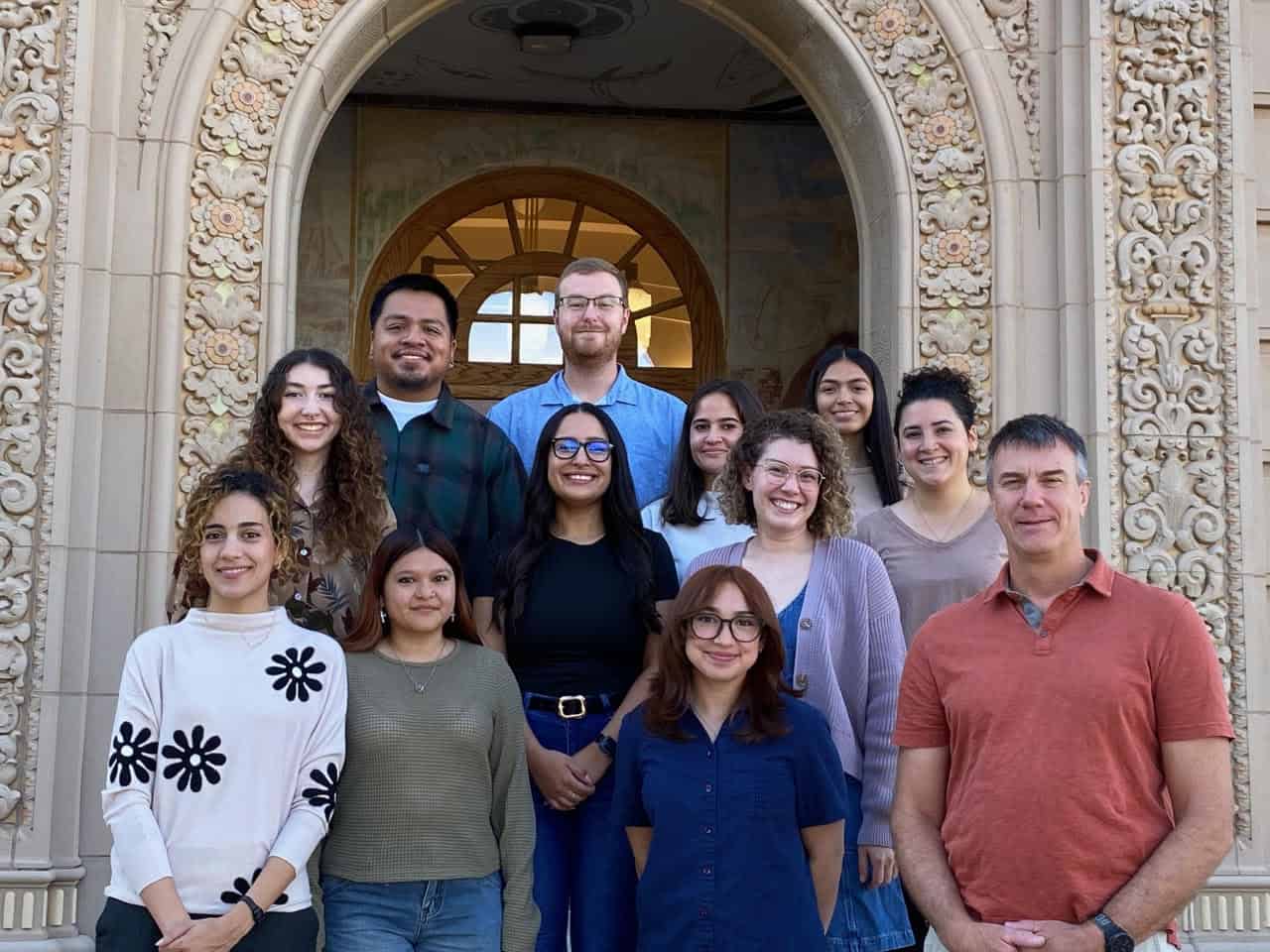


Dr. Timothy F. Wright
Principal Investigator (CV PDF)
(575) 646-1136 | wright@nmsu.edu | Google Scholar
Ph.D.: University of California San Diego
B.A. Dartmouth College
Post-doctoral work: University of Maryland, Smithsonian Institution
Evolution of vocal learning and communication signals
Research Statement: I am broadly interested in the evolution of vocal learning and communication signals. Much of my work has focused on the parrots because of their well-developed learning abilities and the interesting contrasts they pose in behavior, ecology, and life history patterns to the better-known songbirds. One primary area of interest is describing vocal repertoires in selected parrot species and investigating cultural patterns of geographic variation known as vocal dialects. This work has included field studies of parrots, and sometimes hummingbirds, throughout the Neotropics. Another area of interest is broader evolutionary patterns using molecular phylogenies to investigate questions regarding life history, longevity, and mitochondrial genome evolution. A third area of interest is the neural and endocrine mechanisms underlying vocal learning, approached primarily through lab-based studies of the budgerigar. Finally, the serious conservation issues faced by parrots inform much of the work my students and I do, including both conservation-oriented research and educational and outreach efforts.
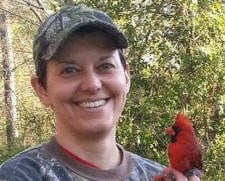
Dr. Jodie Jawor
Affiliate Scientist
jjawor@nmsu.edu
Research Statement: My research interests lie in behavioral endocrinology which allows me to ask both proximate (how) and ultimate (why) questions regarding behaviors in non-human animals. Basically, I’m asking what is the benefit to the individuals showing this behavior in terms of longevity or reproductive success and how is the behavior facilitated physiologically? My research is focused in the area of endocrinology and largely on the steroid hormones (e.g., testosterone, corticosterone) and how these hormones impact behaviors such as aggression and parental care, or aspects of appearance that impact reproductive success, such as plumage coloration in birds. While in the Wright lab I have been investigating the actions of the hormone corticosterone on vocal learning in adult Budgerigars (Melopsittacus undulates) as individuals navigate new social situations which can cause ‘stress’. Recently I’ve begun investigating eco-immunology and migration using various sparrow species overwintering in the Las Cruces area.
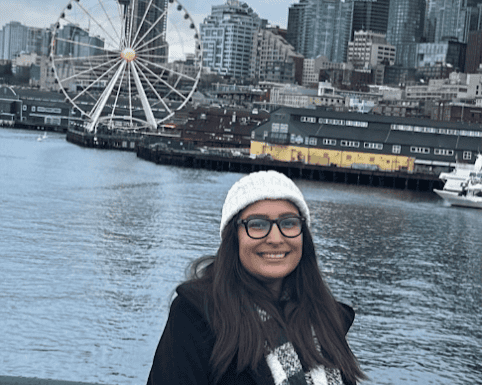
Alondra Villalba
PhD Candidate
alondra5@nmsu.edu
B.S Biology, Northern New Mexico College
Research Interests: Vocal learning, chronic stress, early life stress, physiological stress response, glucocorticoids
Research Statement: My research focuses on understanding how chronic stress influences vocal learning and neuroendocrine function, using the Budgerigar (Melopsittacus undulatus) as a model system. Budgerigars are small parrots capable of learning new vocalizations throughout their lives, making them an ideal species for studying lifelong vocal plasticity. I am particularly interested in how early life stress shapes an individual’s physiological and behavioral responses to chronic stress later in life, and how these experiences interact to influence adult vocal learning and social behavior.
Birds share highly conserved neural pathways for vocal learning with humans, and insights from this research have the potential to inform our understanding of how chronic stress affects adult language acquisition and cognitive flexibility in humans. By integrating physiological, molecular, and behavioral data, my work aims to uncover how developmental stress alters neural and hormonal systems in ways that shape behavioral adaptability and communication in adulthood.
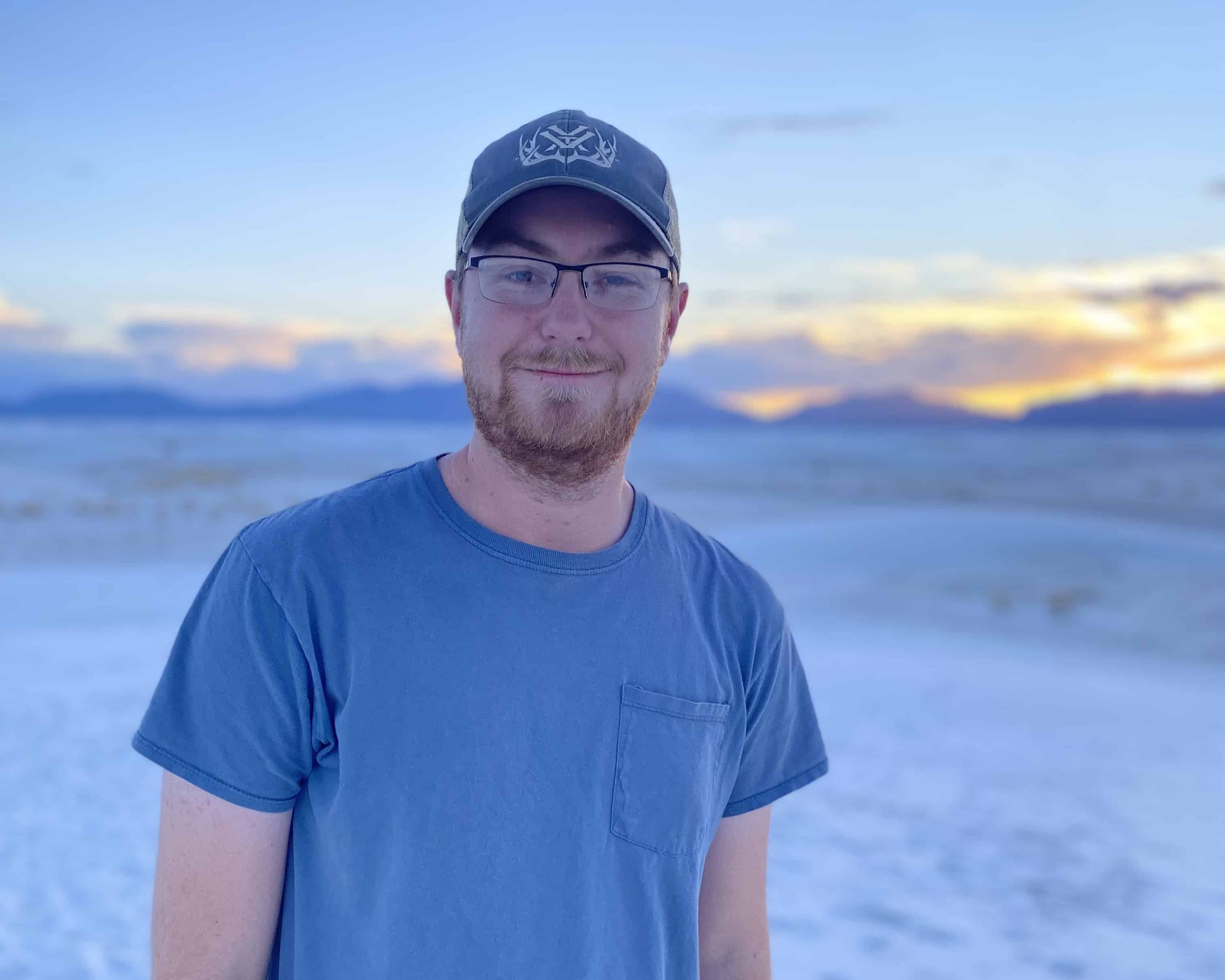
Dylan Osterhaus
PhD Candidate
dylano@nmsu.edu
M.S. (Fisheries Biology) Iowa State University, 2021
B.S. (Biology) Emporia State University, 2019
ResearchGate Website
Research Statement: My research focuses on the implications of anthropogenic alteration of the natural environment for a variety of taxonomic groups including fishes, birds, and mammals. At NMSU, my project documents the interaction of migrating birds with artificial light at night at a fine scale using acoustic analysis of flight calls and the quantification of migration using weather radar. I am measuring migration traffic using large datasets of acoustic recordings analyzed with machine learning algorithms for nocturnal flight call classification. With help from collaborators from the Department of Defense, Cornell Lab of Ornithology, and Colorado State University, we will evaluate whether migrating birds are attracted to small sources of artificial light at night in otherwise dark environments. Additionally, I am interested in using weather radar to examine how anthropogenic alterations of water availability in river corridors of the American West may be altering stopover use by migrating birds.
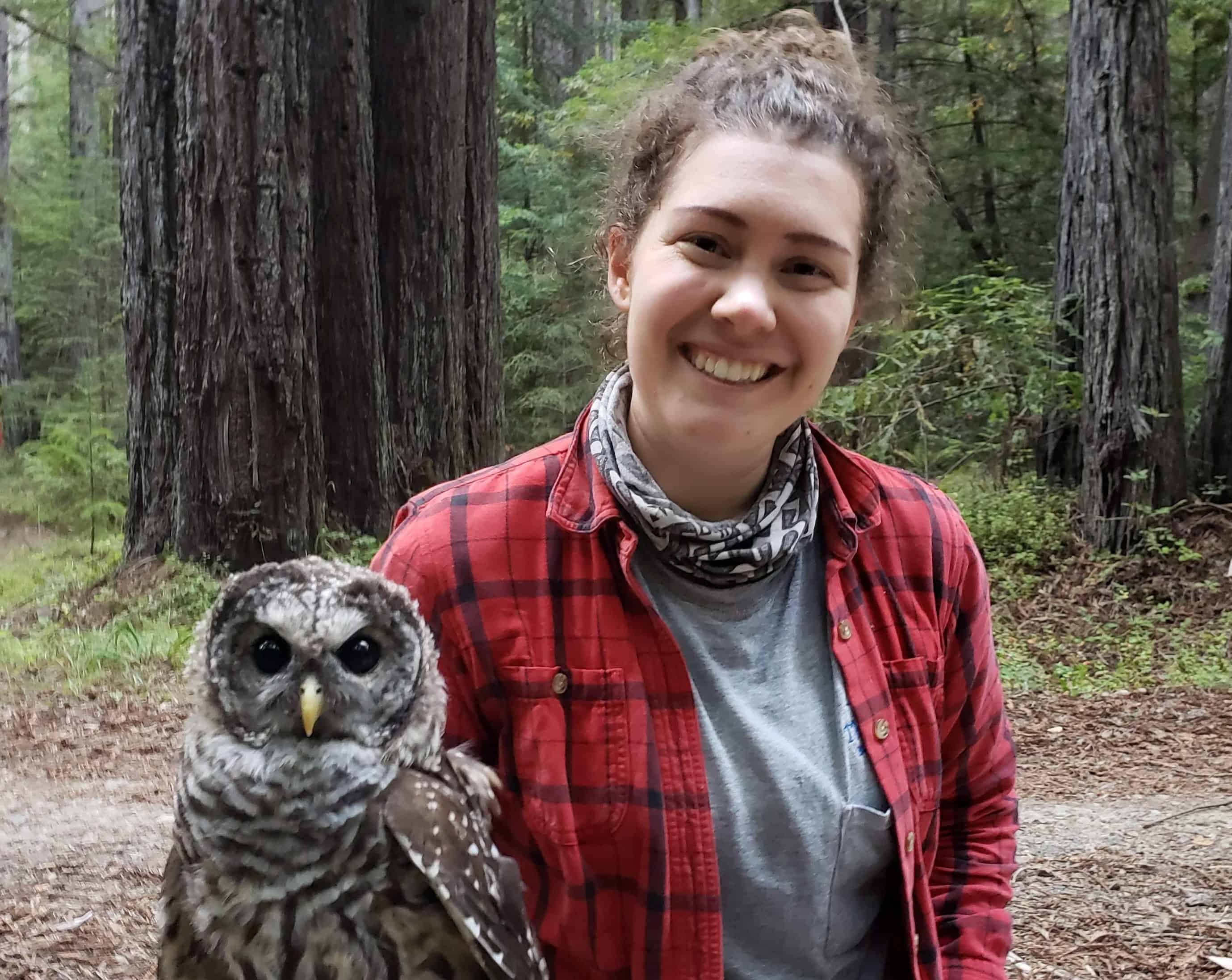
Whitney Watson
PhD Candidate
M.S. (Wildlife Ecology) University of Wisconsin – Madison; B.A. (Biology) Macalester College
Research Statement: I am broadly interested in spatial and population ecology of avian species as it pertains to wildlife conservation. Currently, I am investigating the ecology of rosy-finches in northern New Mexico using long term datasets in collaboration with USFWS, NMDFG, and Rio Grande Bird Research, Inc. I aim to estimate survival and abundance using mark-recapture data, evaluate RFID technology as a monitoring tool, and use stable isotope techniques to examine migration ecology of rosy-finches.
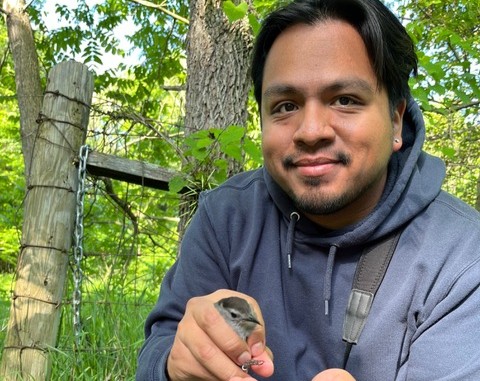
Eriberto Osorio
PhD Candidate
M.S. (Biology) James Madison University
B.S. (Biological Sciences) University of Maryland, Baltimore County
Research Statement: My main interests lie in urban and behavioral ecology, evolution, and conservation. Specifically, I am interested in studying how birds are responding to anthropogenic disturbances and how it can potentially affect their fitness. For my master’s thesis, I investigated how anthropogenic noise can affect gray catbird song across an urban-to-rural gradient. To do this, I conducted a noise playback experiment where I measured their response in both song amplitude and frequency to a simulated urban (low-frequency) noise and a high-frequency noise playback. In my PhD studies, I hope to work in the tropics to continue exploring how different forms of anthropogenic disturbances can potentially affect the learning or cognition of songbirds.
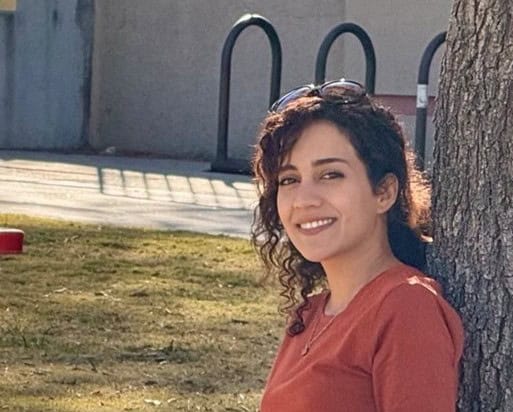
Negin A. Jazi
PhD Candidate
negjazi@nmsu.edu
M.S. (Animal Physiology) Shahid Beheshti University, Iran, 2024
B.S. (Animal Biology) Shahid Beheshti University, Iran, 2018
Research Statement: Hello, I am a PhD student broadly interested in the neurobiology of vocal communication. My research focuses on the molecular and hormonal mechanisms underlying vocal learning in budgerigars (Melopsittacus undulatus), a socially complex parrot species capable of lifelong vocal learning. As I have experiences in using rat models for autistic-like behavior and gene expression for my Master's thesis, I hope to combine my previous knowledge and vocal analysis, gene expression analysis, and endocrine profiling to investigate the neural networks involved in learned vocalizations. Ultimately, I aim to better understand the evolutionary and mechanistic parallels between the avin and human vocal learning.
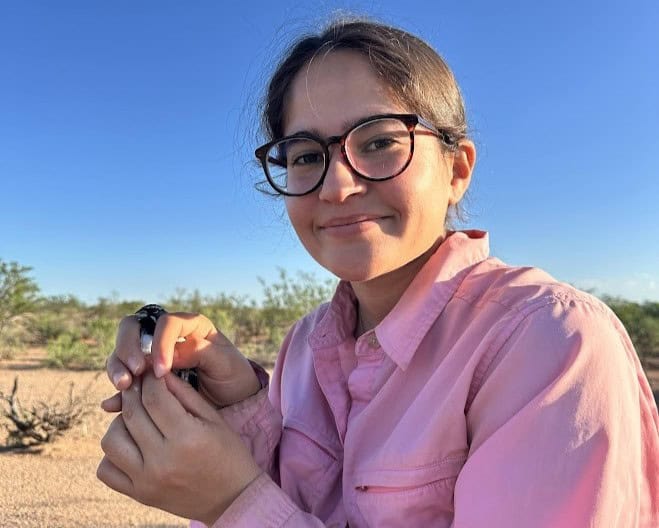
Juliemar Cuevas-Hernandez
MS Student
B.S. (Biology) University of Florida, 2022
Research Statement: I am currently co-advised by Dr. Martha Desmond, Dr. Aaron Young (FWCE), and Dr. Timothy Wright (Biology) and obtaining my MS in FWCE. My research studies how desertification is affecting wintering birds and breeding Black-throated Sparrows (Amphispiza bilineata) at the Jornada Experimental Range in Las Cruces, NM.
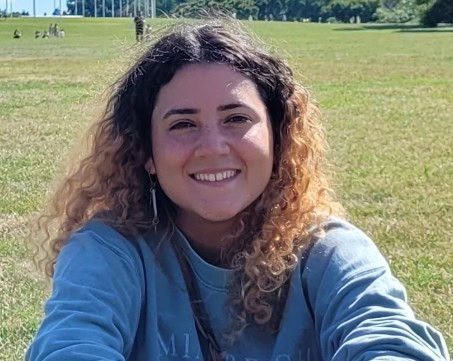
Coral Matos-Sepulveda
MS student
B.A. College of the Atlantic, 2020
coralm@nmsu.edu
coralmatos8@gmail.com
Advisors: Dr. Abby Lawson, Dr. Timothy Wright, and Dr. Dan Collins (USFWS)
Research Statement: My main interests are in waterbird habitat use, migration, and conservation. The M.S. project I will be working on focuses on Mexican ducks and other dabbling ducks use of stock tanks or diked wetlands. The field work will be conducted in southeastern Arizona during the winter months. Selected ducks will be marked with satellite transmitters to better understand their movement patterns. I will also be a part of NMSU’s new Avian Migration Program.
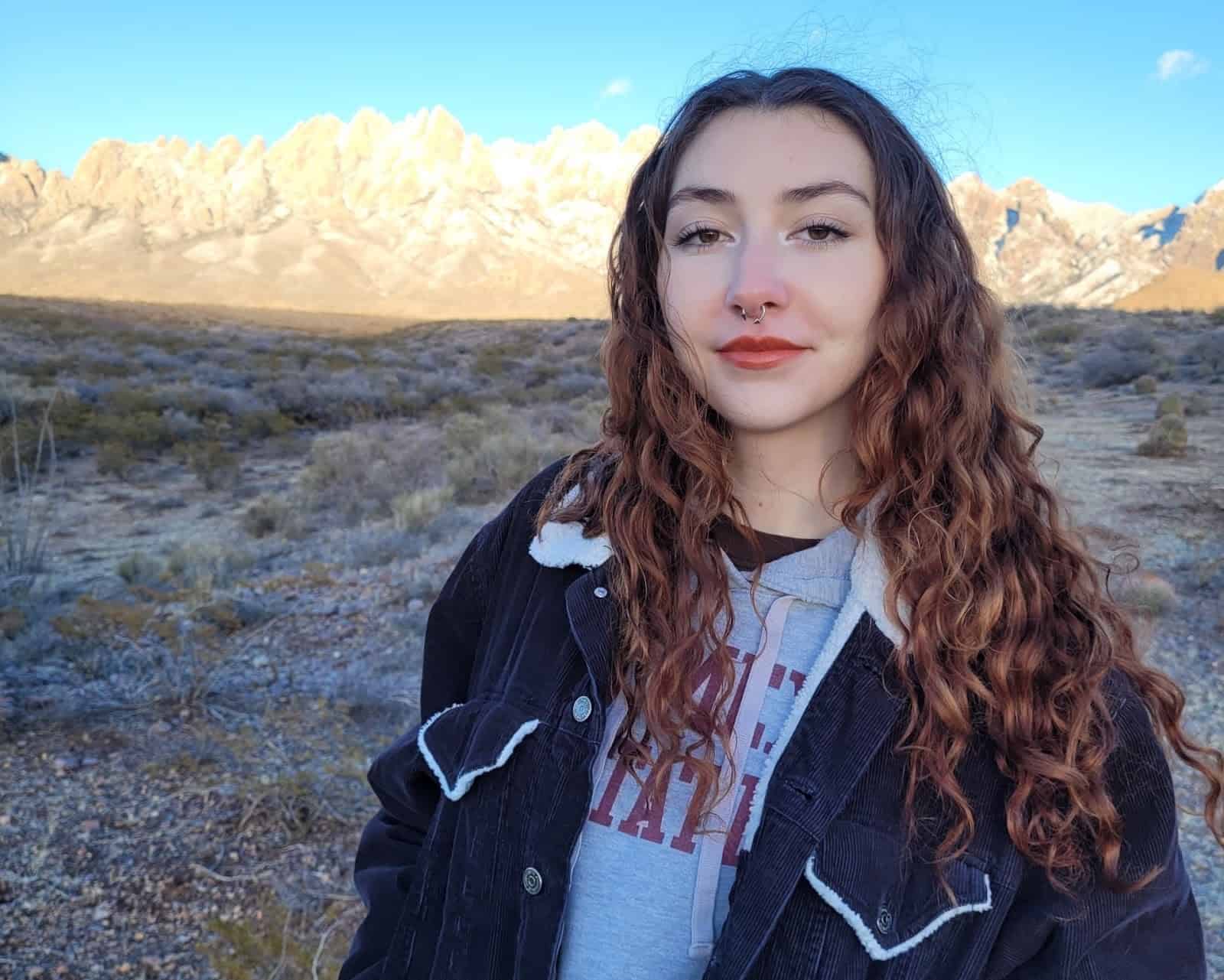
Julianna Diaz
Undergraduate Researcher
Research Statement: In a broad scope, my overall interests lie in conservation initiatives, and better yet how these strategies can be shared with the public in a logical way. I am studying how migration relates to, and subsequently affects, ecoimmunology within avian species. Through this project I hope to gain a comprehensive understanding on how immune systems provide an insight on proper conservation strategies, and more specifically how avian species are especially susceptible to illness due to the process of migration.
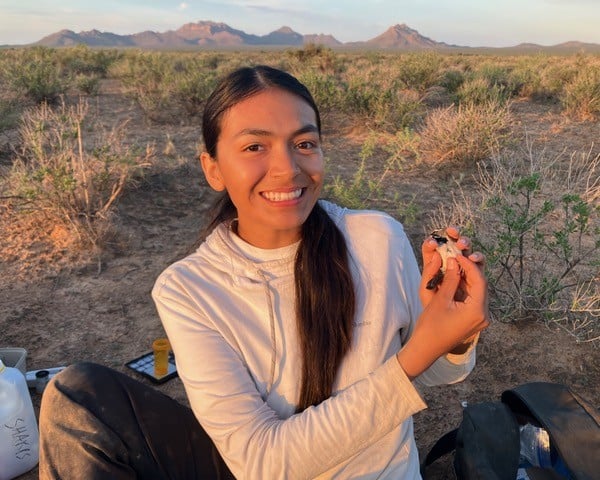
Amyliah Pina
Undergraduate Researcher
Research Statement: My research interests broadly lie in avian ecology and conservation. I am currently involved in the Sparrow Eco-Immunology Project in Dr. Wright’s lab, where we are investigating immune system trade-offs in sparrows that migrate varying distances. This work has deepened my interest in how physiological traits are shaped by ecological demands. Most recently, I worked as a field technician with desert grassland birds, which expanded my interest in how avian species persist in extreme and rapidly changing habitats. I am excited to pursue future research on how birds interact with their environment and how we can protect those interactions in a changing world.
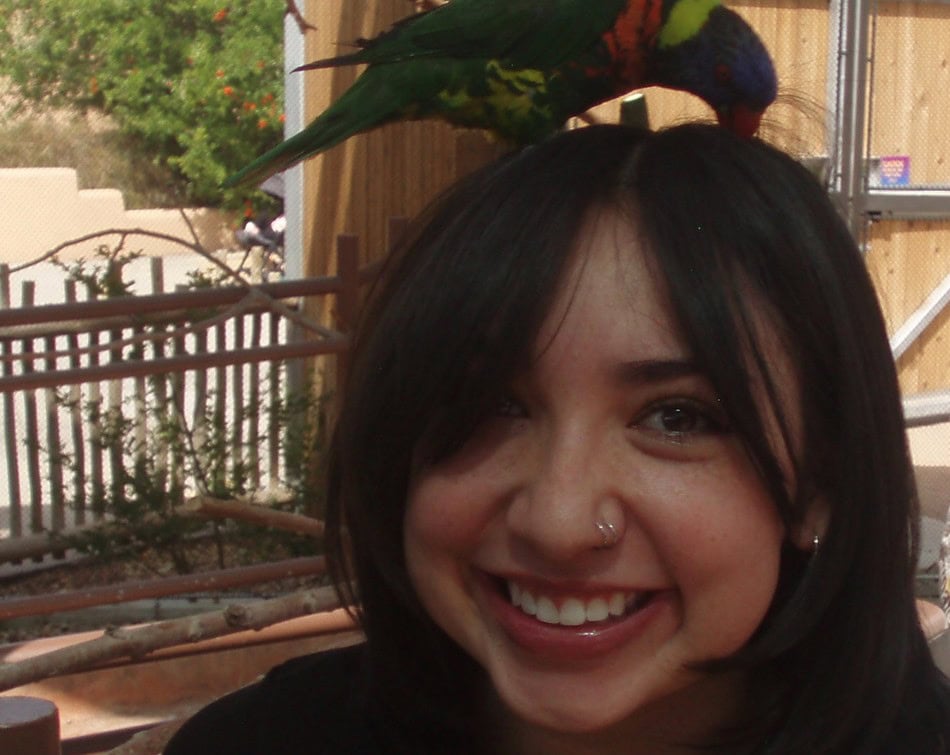
Brynn Mora
Undergraduate Researcher
Research Statement: My research interest focuses on understanding how environmental changes shape the behavioral patterns of avian species. Currently, I am analyzing data on Long-billed Hermits and Stripe-throated Hermits to explore their ability to recognize and repeat rewarding feeder arrays. This research aims to seek cognitive and behavioral mechanisms that enhance foraging efficiency and survival to contribute to the understanding of adaptive responses of avian species in changing environments.
|
Daniel Acosta |
Alexander Allison |
Justin Apodaca |
Dr. Marcelo Araya-Salas |
Victor Baquera |
Dr. Scott Boyle |
Carlos Campos |
Amelia Clayshulte Abraham
|
|
John Coffman |
Breanne Cordier |
Jennifer Currier |
Dr. Christine Dahlin |
Connor Draney |
Patricia Duarte-Hash |
Molly Dupin |
Dr. Greg Gedman |
|
Jaime Guerra |
Dr. Clara Hansen |
Dr. Erina Hara |
Dominique Hellmich |
Darlene John |
Dr. Greg Kohn |
Dr. Esteban Lucero |
Alexa Martinez |
|
Ryan McGee |
Dr. Angela Medina-Garcia |
Dr. Alejandro Melgoza |
Kayla Moehn |
Bushra Moussaoui |
Monica Munoz |
Dr. Shannon Pease |
Jemima Perez |
|
Valeria Perez |
Emily Phillips |
Aldo F. Ramirez |
Dr. Brian Ramos |
Grace Salmon |
Dr. Erin Shirtzinger |
Amanda Schmidt |
Dr. Grace Smith-Vidaurre |
|
Sierra Strebe |
Cole Tobin |
Kennedy Ulmer |
Tawni Voyles |
Dr. Osceola Whitney |
Dr. Anna Young |
|
|